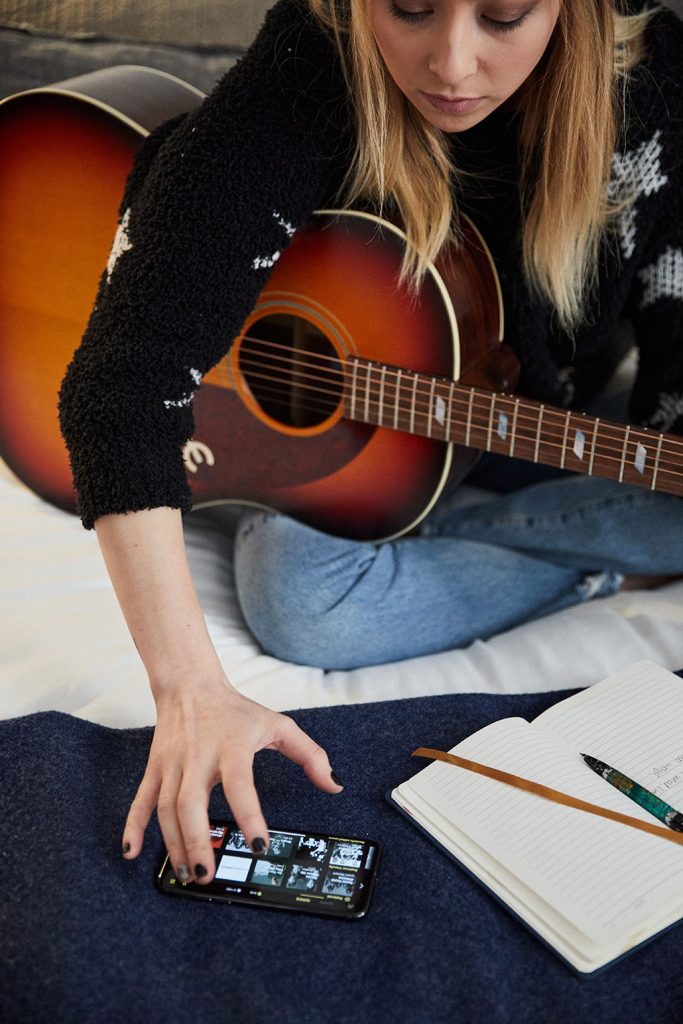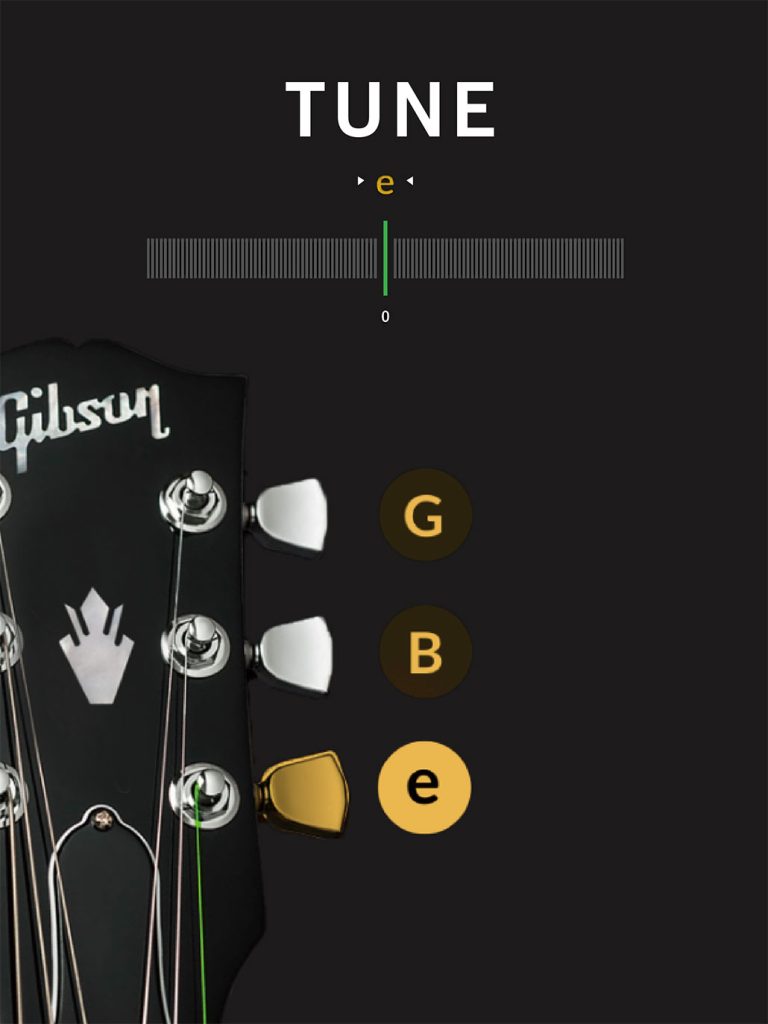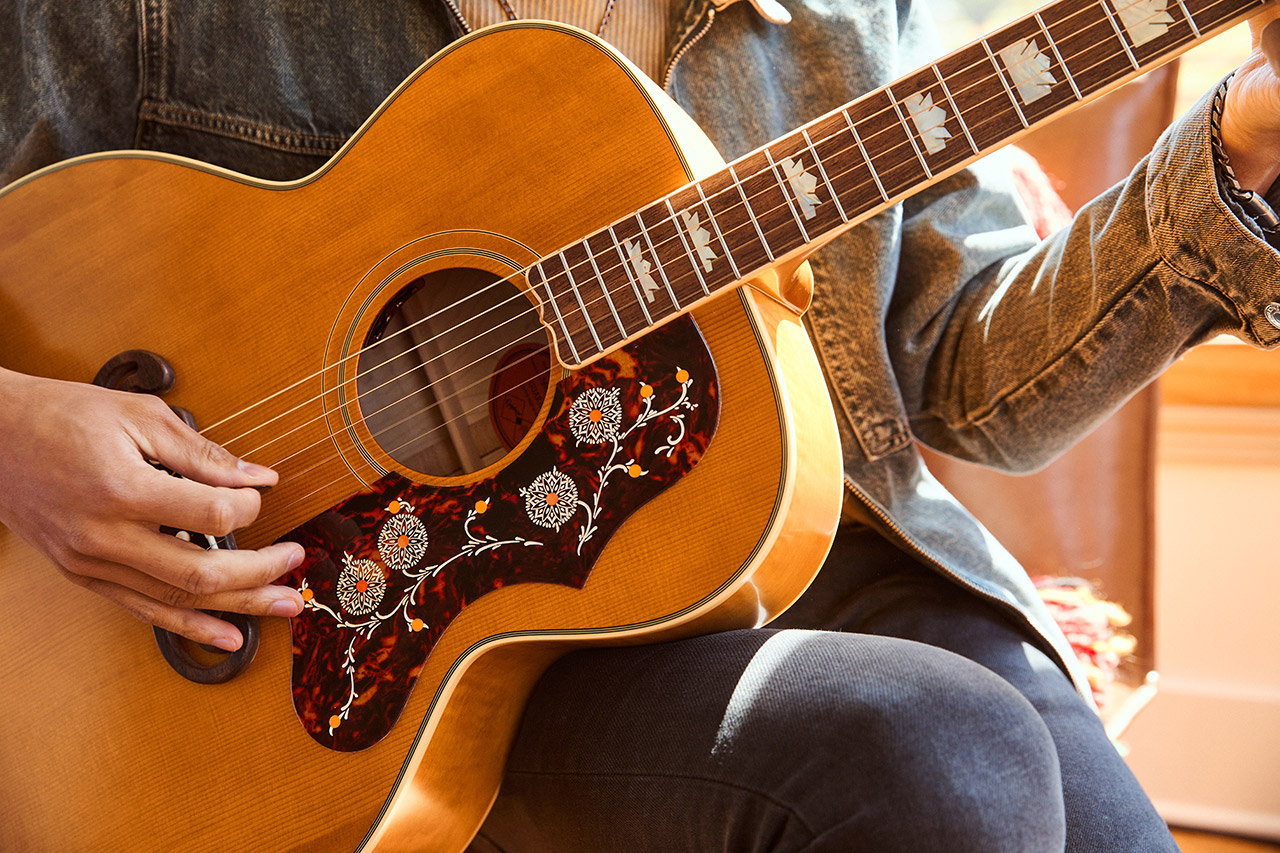The shopping guide you need to begin your guitar journey
So, you’re searching for the best starter acoustic guitar—that elusive, soulful, beginner-friendly axe that beckons fingers to the fretboard and draws in audiences with its siren song.
The fact of the matter is that every new guitar player—whether they have dreams of hitting the stage or want to pluck away in the garage undisturbed—has different needs. So, there’s not one perfect starter acoustic guitar that will work for everyone.
Once you have learned the basic acoustic guitar terms and features, you are ready to begin your search for your perfect instrument. Choosing the best beginner guitar that meets a new player’s unique characteristics is crucial. Below, we’ll explain why choosing the perfect starter instrument is so important, cover some guitar features to look for, and list a few of our favorite models for every beginner guitarist.
Whether you’re shopping for yourself or planning an extra-thoughtful gift for an aspiring musician, this is the shopping guide you need to start your guitar journey.

Image: The Gibson App has lessons for players at every stage and level of skill
Why choosing the right starter acoustic guitar matters
So, why can’t you just pick out the prettiest acoustic guitar in the Gibson or Epiphone lineup and call it a day? Simply put, not every guitar is ideal for beginners.
Your first guitar should be:
- Easy to play – Your first axe should be comfortable to hold and have a neck that’s compatible with your hand size. If you’re a complete newcomer to guitar, you’re about to get the hand workout of your life—don’t start on expert mode with a guitar that’s challenging to play.
- High-quality – Whether you become the next Joni Mitchell or your guitar collection never surpasses single digits, there’s a universal truth when it comes to buying different guitars: you’ll never get rid of your first one. So, you should pick a high-quality model that’s built to last.
- Versatility – You’ll likely be playing your first instrument for multiple years and in multiple different scenarios. So, get one that can hold its own in a campfire jam session and on the open mic stage.
We won’t sugarcoat it: starting guitar lessons and building up those beginner callouses can be tough going for a little while, but stick with it. Learning guitar isn’t the most comfortable experience at the outset, so make an effort to get an instrument that you can see yourself committing to for the long haul.
Top features to look for in a beginner acoustic guitar
We touched on a few features of a great beginner guitar above, but let’s zoom in on some more.
Guitar size and playability
When it comes to guitars, size matters. If you’re built like Tinkerbell, you’re simply not going to enjoy playing (or lugging around) a Super Jumbo guitar. If you’re often mistaken for the Hulk, hunching over a small body guitar may not do your back any favors, either.
Body size plays a major role in playability, especially for beginners. As you pick up and play a few different guitars, check for appropriate sizing by:
- Sizing up the neck – Realistically speaking, you need to be able to reach the third guitar string (G in a standard tuning configuration) with your pinkie. If you can’t, the fretboard might be too wide for your hands. If you’re worried that your hands are too big for a guitar, try to reach the top guitar string (E) with your index finger. If your finger feels cramped, you might need a model with a wider neck.
- Sitting in a playing position – Guitarists play in a variety of seated positions, and your preferences will depend on your playing style (which you may not have a clear idea of yet), posture, and physiology. Try out a few different guitar body styles and sizes and see what feels good. The only requirement is that you can reach the strings over the soundhole with your dominant (strumming and picking) hand—other than that, you can sit any way you like while playing.
Remember: bigger doesn’t always mean louder (or higher quality). Choosing a great guitar that’s comfortable to play is critical, and it should be your top priority.

Image: Getting in tune is a major part of starting off on the right track with acoustic guitar
Sound quality and tonewoods
Solid wood species are about more than just aesthetics—they determine influence the tonal signature of your instrument. Acoustic guitar tops are generally made from softwoods such as spruce that are stiff enough to hold up to construction and play demands; conversely, backs, sides, and necks are typically hardwoods.
In your search for the best starter acoustic guitar, turn to models made from high-quality, time-tested tonewood species like:
- Mahogany – The natural sustain (the continuation of sound after plucking the note) and midrange warmth produced by a mahogany-bodied guitar is unparalleled.
- Maple – The clear and crisp sound of a maple-bodied guitar has been featured on countless recordings over the years.
- Spruce – One of the most ubiquitous wood species in lutherie, spruce is consistent and can adapt to a wide dynamic (volume) range. It’s an industry standard for acoustic guitar tops that will never let you down. Commonly used varieties in guitar making include Adirondack and Sitka.
- Rosewood – For rich and warm sounds, look no further than guitars with rosewood backs and sides.
- Laurel – A sustainable, aesthetically pleasing species, laurel is similar to rosewood when it comes to tone and is often used for fretboards.
While you may not have an ear for tonewoods as a newcomer, trust your gut. If you like how a guitar sounds, it’s a contender.
Durability and price considerations
Balancing durability and cost has long been a quandary in the guitar world. This is especially true for beginner guitarists.
If you’re just starting your guitar journey, durability should be a top priority. Why?
- This is a forever guitar – Remember what we said earlier about never selling your first guitar?
- You’re going to be playing hard – You have scales to memorize, strings to practice changing, and frets to cover in sweat. Your beginner acoustic guitar is going to need to be a workhorse.
All of the above is especially true for kids. If you’re shopping for a young future guitarist, durability is a must—because kids and beginners alike are clumsy and will play hard. And if you think you’ll part more easily with your first guitar because it’s a youth model, think again.
Of course, the counterpart of durability is price. We recommend setting a budget that makes sense (whatever that looks like for you) and working hard to find the most durable, best-sounding and easiest to play instrument within that budget. Whether it’s a cheap or expensive guitar, there’s a high-quality, durable guitar at every price point.
Plus, don’t forget that you’re going to be spending some coin on guitar accessories and must-haves for your kit—cases, picks, cables, and more.
Best starter acoustic guitars for beginners
The moment you’ve been waiting for has come: here are some of our best starter acoustic guitar recommendations for first-time players.
Recommended models under $500
If you’re rockin’ on a budget, don’t worry—there are many affordable options out there for starter guitars. Here are four of our favorites:
- Epiphone Classic E1 – Whether you’re an ambitious future classical guitar enthusiast, a mariachi superstar-to-be, or a newcomer looking for a no-nonsense starter acoustic, the Classic E1 delivers. Modeled after the industry’s favorite classical guitars (built for hardcore play and practice), the E1 is a small-bodied, mahogany-based machine designed for beginners with the aim of becoming experts.
- Epiphone J-45 Studio – If you’re looking for a guitar with a distinctive and powerful voice (the perfect coach as you suss out your unique playing style), look no further than the J-45™ Studio. With round shoulders and medium jumbo frets, this is the perfect guitar for average-build newcomers seeking durability and sound quality.
- Epiphone Hummingbird Studio – What’s not to love about the Hummingbird™? It’s an update on a classic 60s design, sports a mahogany neck and body, and offers ample versatility for onstage adventures thanks to its Fishman® Presys VT pickup. Not to mention, it’s an undeniable looker—a guitar perfect for adult beginners in search of an iconic model.
- Epiphone Dove Studio – The Dove™ was first introduced at the Gibson and Epiphone factory in Kalamazoo in 1962 and it’s remained a rock classic ever since. Perfect for both pure acoustic and amplified play, the Dove is a maple-based workhorse that can meet the demands of beginners and veteran shredders alike across various musical styles.
Recommended models for serious beginners
Looking to splurge? Trying to spend a little more on durability and improved sound quality? Let’s dive into our favorite guitars for slightly bigger spenders:
- Epiphone Masterbilt Frontier – The Masterbilt Collection explores the rare, 60s-era Epiphone Frontier—one of the iconic models produced at the Kalamazoo, Michigan plant during the 1960s. With medium jumbo frets and solid maple body construction, this is a resonance machine. For the discerning newcomer, this new take on an old classic is sure to please.
- Epiphone Inspired by Gibson 1957 SJ-200 – Inspired by the classic Gibson SJ-200 design—a guitar that’s been in the hands of Elvis, Emmylou Harris, Bob Dylan, and countless other bonafide stars—the 1957 SJ-200 is the perfect match for large-statured players or anyone who wants to make a statement onstage. The J-200 is built from solid figured maple and features L.R. Baggs electronics: truly a guitar for all seasons.
- Gibson J-35 – The J-35 is a descendant of the Jumbo—a 1936 model built for Depression-era musicians and known for its warm, soulful tones. A spin on a classic, the J-35 features standard frets and the iconic Gibson round-shoulder body style, making it a versatile option for a variety of musical styles. Aspiring fingerpickers, folk-lovers, and garage jammers need look no further.
Picking the best acoustic guitar for a new player
When it comes to the best starter acoustic guitar, there are many models to choose from based on your specific needs. But there’s no question that the Gibson family of instruments should be your first stop for high-quality, durable, and sonically unmatched guitars.
A household name in music for over 130 years, Gibson is one of the most trusted guitar brands in music. When you’re ready to start playing, we’re here to help.

